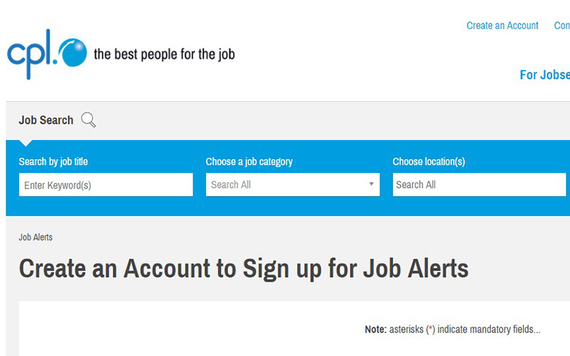Searching for a job is time consuming, you need to work on your CV, browse job boards, update social media, reach out to contacts, prepare for interviews, and cross your fingers really hard. All the while you’re either working in another job or trying to make ends meet without one. For many people, just finding the time to find a new job is the biggest challenge.
Thankfully, there are a few ways to automate your job search so that it keeps working, even when you don’t have the time.
Recruitment Agencies
Recruitment Agencies.
The best way to ‘automate’ your job search is to find a recruitment consultant who understands what you have to offer and the kind of role you’re trying to find. That doesn’t mean just submitting your CV to every recruiter you can find. Talk to a few recruiters and find the one who sees the value you have to offer and has access to the jobs you want. If you do that, you’ll have an ally who will guide you on making the most of your CV and put your case to an employer – while you worry about selling yourself when you get to interview stage.
CV Databases
CV Databases.
These days, there are a lot of places you can upload your CV for review by recruiters and employers. The theory being that once your CV is up there you can just sit back and wait for the interview requests to roll in. Sadly, it rarely works that way.
I’ll let you in on a secret – recruiters have very little time to review CVs and they get tons of them every day. They review CV databases, but only in the context of the jobs they’re working at that time. If you’re CV doesn’t have the right keywords, they may never find you. That’s not to say you should avoid CV databases, just understand how they work and why you can’t rely on databases alone.
LinkedIn.
In many ways, LinkedIn is just another CV database – the difference is that it’s huge and incredibly active. If you optimize your profile properly and make sure you hit ‘all-star’ profile strength, you will be found by recruiters. The key is to focus on the search terms for which you want to be found and to make sure that you highlight your successes first, rather than just throwing together a list of duties. We’ve reached the point where LinkedIn should be a minimum for anyone who wants to develop their career. Even after you get a job - keep it up to date so that it’s ready when the next opportunity comes along.
Job Alerts
CPL Job Alerts.
One other piece of selling in this post so let’s get it out of the way quickly - you can sign up for email job alerts from Cpl right here. Most job boards and recruitment agencies offer them and they can really make a difference to your job search. Instead of going back to the same job search pages day in and day out, set up the search once and every time a new role gets posted you’ll receive an email. It’s that simple.
Google Alerts
Google Alerts.
Google Alerts work in the same way as Job Alerts – you create a search and then get regular email updates on your results. Instead of waiting until a job is advertised, create alerts for things like job announcements and business updates on brands you’re interested in, and you’ll never miss an opportunity.
Twitter Lists.
Twitter Lists are a great tool for the social media savvy jobseeker. Anyone can create lists of Twitter users and follow their updates, without that content getting filling up your precious home feed. Make a list of recruiters and brands you want to work for to keep all of your job-related tweets in one place. You can even use tools like Hootsuite or Tweetdeck to create ‘streams’ based on hashtags or search terms for easy review later.
Now all you need to do is find the time to review them.
Start automating now
Sign up for Cpl Job Alerts at cpl.ie.




Comments